
As a new poultry owner, there’s nothing quite as exciting as looking into the nest box and seeing your first egg. Here we go, the reason we decided to get chickens in the first place; it’s finally starting! There’s also nothing as disconcerting as when they suddenly stop laying.
Backyard flock owners often worry there might be something terribly wrong with their chickens. While a pause in egg-laying can signal health issues, most of the time, it’s something less serious. Let’s look at the most common reasons your hens aren’t laying and what you can do to help.
Monitor Egg Laying
A drop in egg production is an important metric to consider when monitoring your flock’s health. Knowing how often individual birds lay makes it easier to keep tabs on them. A pause in egg-laying can be the first sign that something’s amiss, so keeping track is a good idea.
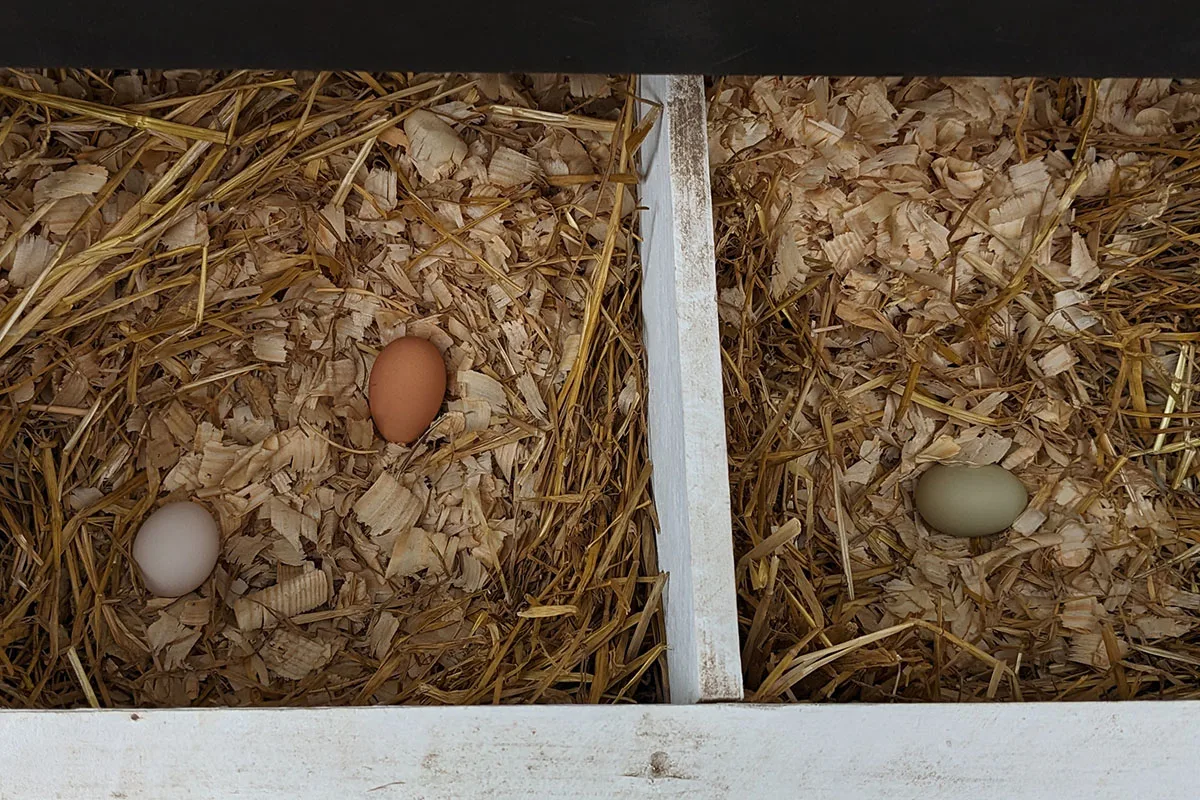
If you have a small flock, it’s much easier to note these things mentally. Larger flocks might require some way of recording eggs, provided you know whose eggs are whose.
Let’s jump in, shall we?
1. Your Birds Are Not Old Enough
New poultry owners often worry when their pullets haven’t started to lay yet. You’ve waited patiently since the girls were tiny balls of fluff, but that nest box is still empty.
Young hens, or pullets, begin to lay between 18-22 weeks in age, around six months. As you reach that 18-week mark, one can get pretty antsy. Just be patient, and remember that other factors come into play, including the breed and time of year. Eventually, it will happen. In the meantime, check out six signs that your pullet is about to start laying.
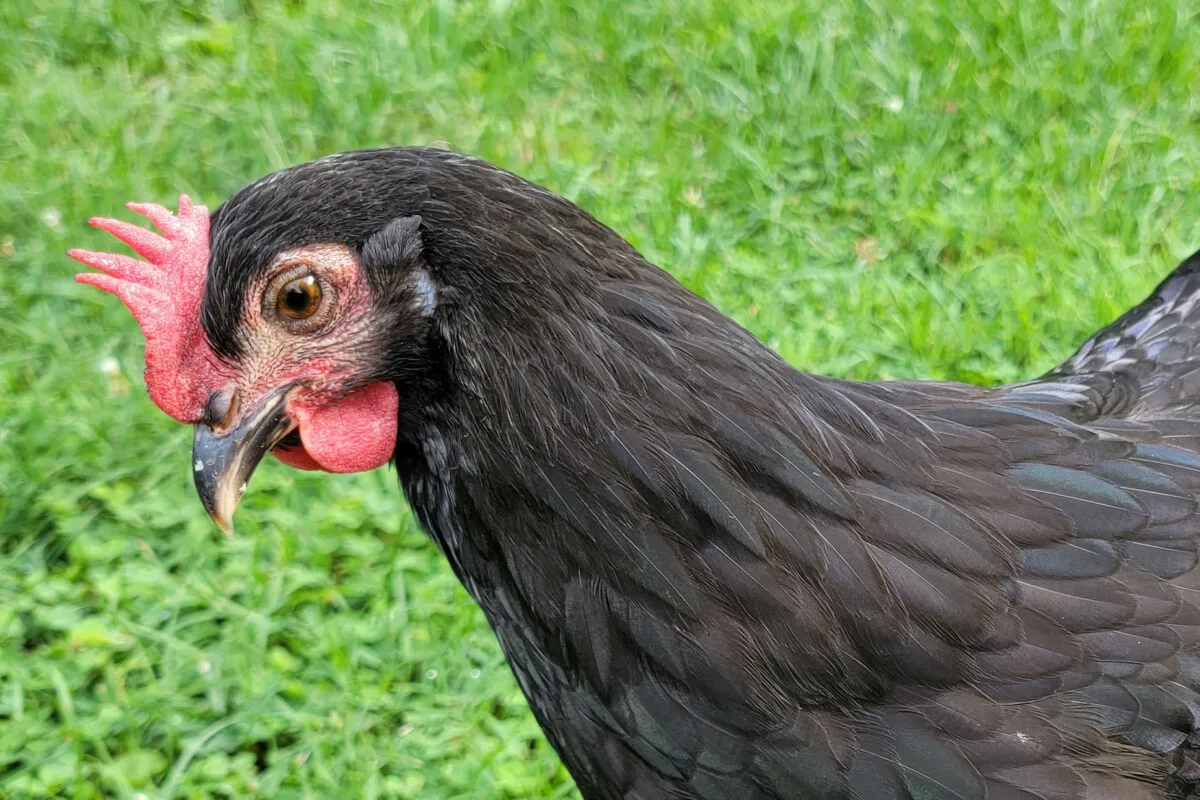
What to do?
This is one of the easiest ones to fix. You wait. You can encourage pullets to start laying when they have reached sexual maturity by placing wooden or ceramic eggs in the nest box. You don’t want to rush them if they’re still too young. Important developmental milestones must occur for your hen to have a healthy reproductive system. Pushing hens to lay too soon can lead to an egg-bound hen.
Our little olive-egger, Tig, took forever to start laying. She’s now our most prolific producer, giving us an egg every day, even through the winter.
2. Poor or Improper Nutrition
Just like the rest of us, your hens need proper nutrition to function well. If hens don’t have a good diet with fresh water, egg laying drops off immediately. Access to plenty of clean water is imperative to egg production. As well as water, you need to feed your birds the proper diet. To produce an egg every 24-26 hours, your birds need a high-protein diet. Consider starting a chicken garden.
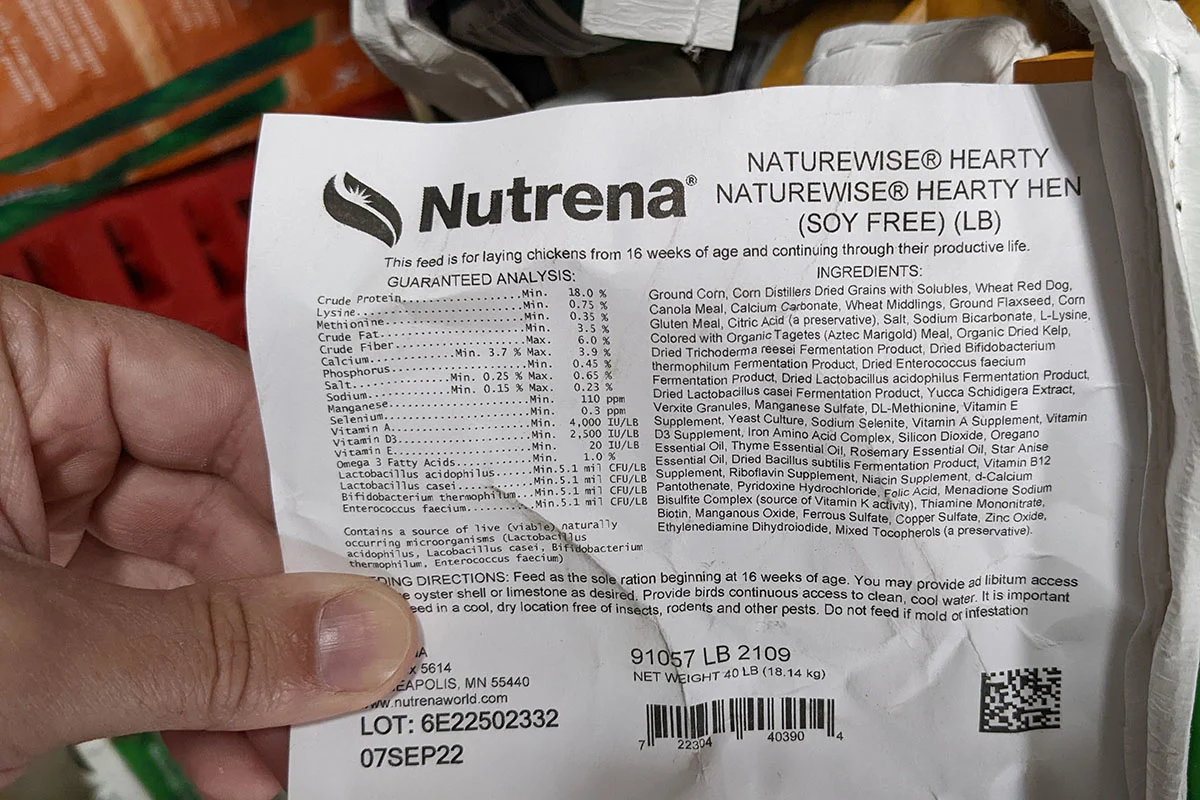
What to do?
Provide your flock with clean water that you change regularly. Make sure they have access to water outside and inside the coop. Feed a quality layer crumble or pellets when your hens begin to lay to ensure they get enough protein. Offer hens high-protein snacks such as black soldier fly larvae or pumpkin seeds. Don’t forget to provide a source of calcium, such as oyster shells, as well.
3. Molting
If you’ve noticed your hen looks a little worse for wear and she’s stopped laying, she’s probably molting. Once chickens reach 18 months, they usually experience their first adult molt. A molt is when your bird loses her feathers and regrows a new set. During this period of feather regrowth, she will stop laying.
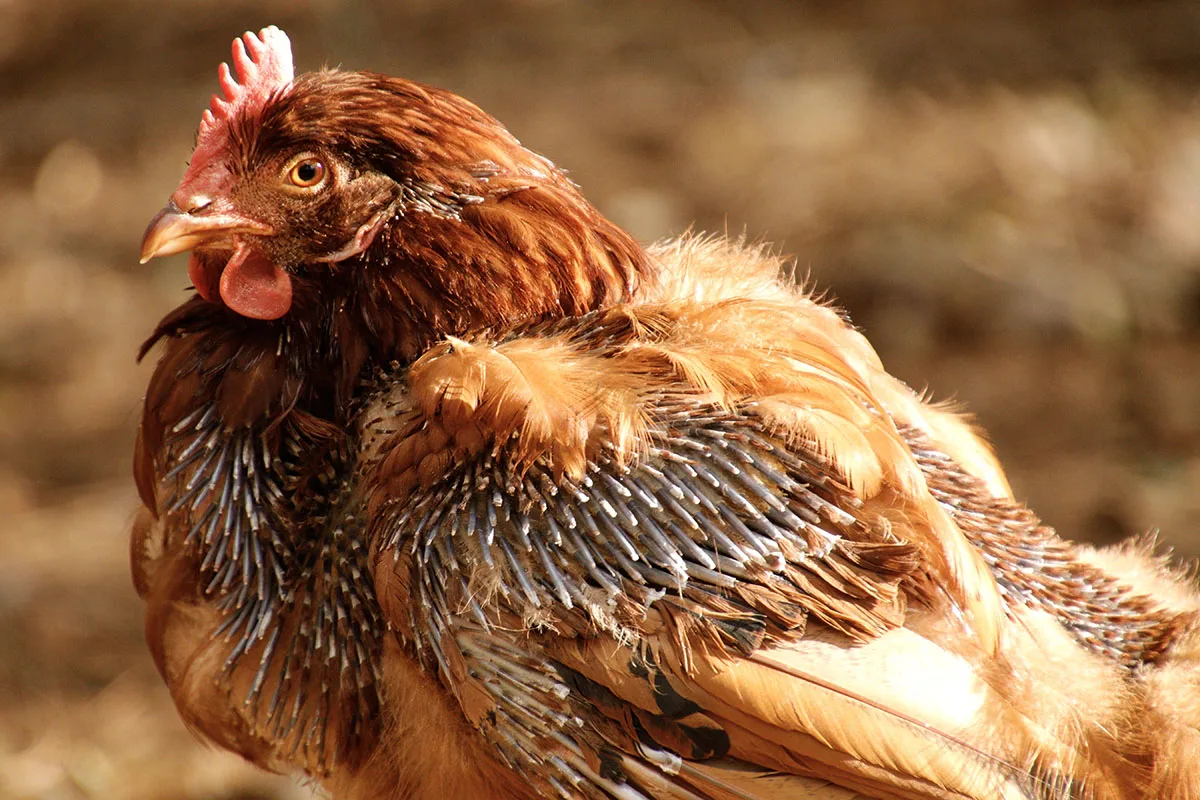
After this first adult molt, your chicken will experience a new molt every year. Chickens usually molt in the fall but can sometimes molt in the early spring too. It generally depends on what time of year they initially started laying. A molt can take anywhere from eight to sixteen weeks.
What to do?
Be patient. Growing new feathers requires a lot of protein, which is why they stop laying. Feed plenty of protein-rich snacks to help your hen with the process. Avoid picking up and handling a molting bird, as her pin feathers are uncomfortable (for her, not you). Keep a close watch on molting birds, as they are likelier to be hen-pecked. Within a few weeks, she will have beautiful new feathers and will be back in the nest box.
4. Seasonal Changes
Light is one of the most important factors when it comes to egg-laying. Hens need around 16 hours of daylight to produce eggs regularly. This is why you start getting fewer eggs as the days get shorter.

What to do?
You can supplement natural daylight with artificial light if you want a high egg output. Try adding a light with a timer to the inside of the coop to extend your hens’ daylight hours when you head into the shorter days of winter. It’s important to choose a light that does not get hot. Never use a heat lamp in the coop, as this presents a serious fire hazard.
Many flock owners choose not to supplement with artificial light, giving their birds a much-needed rest during the cooler months. There is even some debate as to whether or not using artificial light leads to fewer eggs over a bird’s lifetime from the stress of being on a year-round cycle of laying.
5. Stress
Hens are fussy little things, and changes to their environment can cause them to stop laying for a while. If you’ve added new birds to the flock, moved their coop, or changed the type of feed you offer, these things can be enough to stress a bird and cause a pause in laying.
Even things like extreme weather can disrupt a hen’s laying cycle. Keep this in mind when the temperatures soar in the summer and plummet in the coldest days of winter.
The threat of predators can make birds feel unsafe, causing them to stop laying.
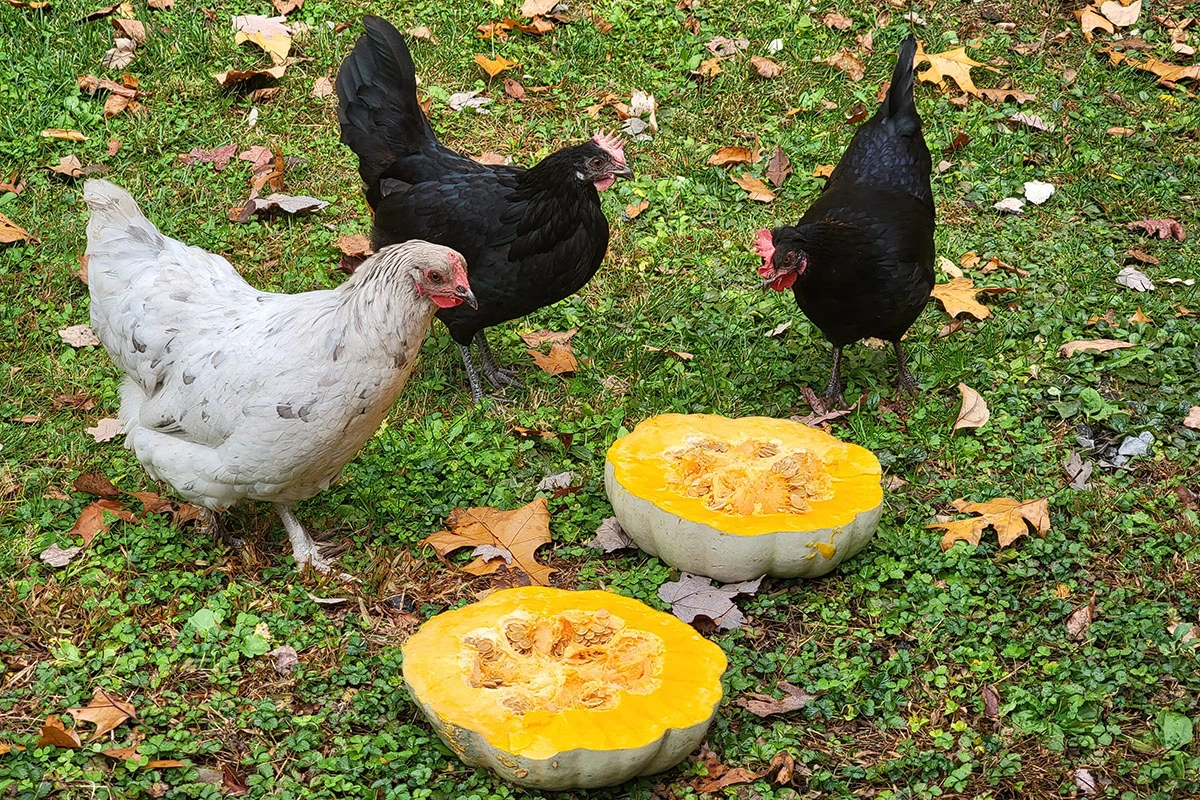
What to do?
Pay attention to external factors that could be causing an upset in your flock. Obviously, some things are difficult to avoid, such as adding new birds. Just remember, if you make changes, you’ll need to give your girls a little extra time to adjust before they resume egg-laying.
In extreme temperatures, you can take extra steps to ensure your flock’s comfort, such as offering cool treats when it’s hot out or making sure your coop is insulated well against the cold. If you offer treats outside the coop, do so where the hens feel protected, such as under a tree or shrubs, so they aren’t out in the open where they can feel exposed.
A happy flock means more eggs with fewer pauses.
6. Not Laying in the Nest Box
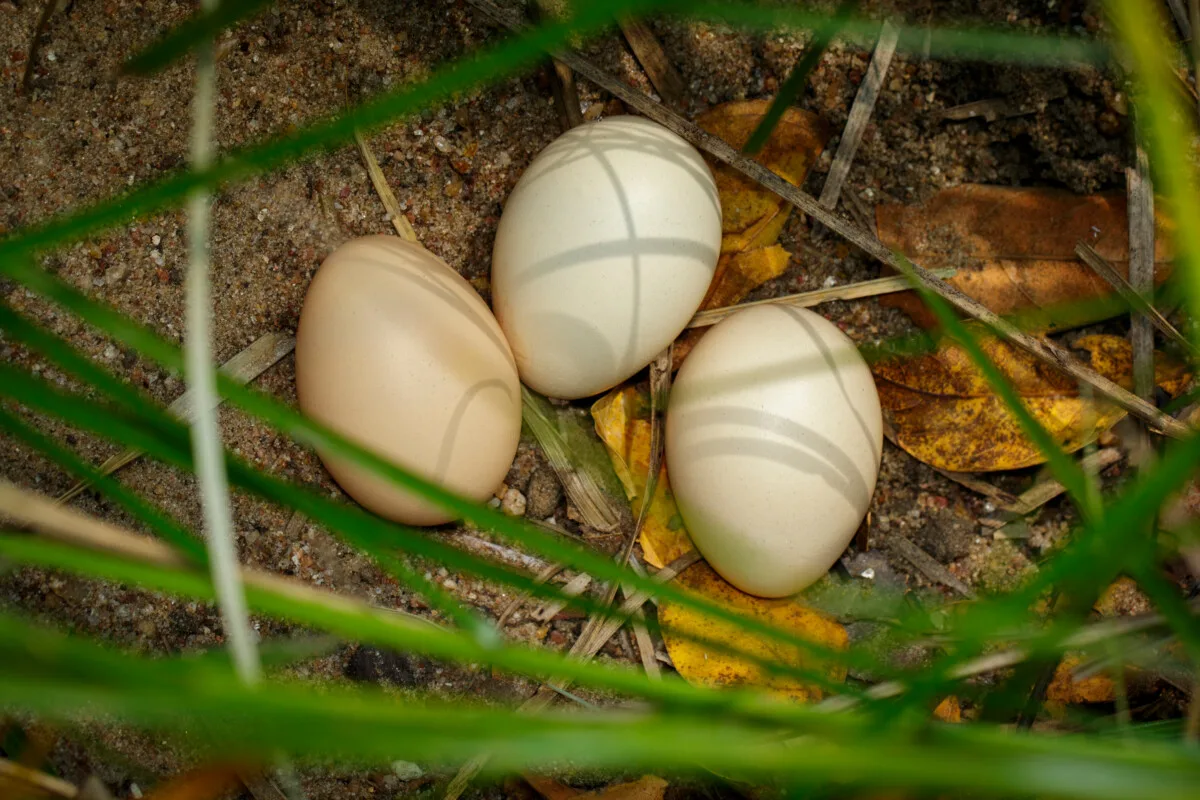
Perhaps your chicken is laying eggs, just not where she should be. Now and then, a hen will go rogue and start hiding eggs, laying them somewhere else and building a secret nest.
Hens will stop using nest boxes if they aren’t comfortable and secure. If your hen feels harassed or hurried by coop mates, she may start laying eggs elsewhere. If the bedding in the box is dirty or infested with mites, hens will look for a more comfortable spot to lay eggs.
What to do?
One of the first things you’ll need to do is figure out where her hidden nest is and remove the eggs. You can make sure hens stick to the nest box by ensuring there are enough to go around. The rule of thumb is one nest box for every four hens. Keep nest boxes clean and comfy by cleaning out old bedding and disinfecting nest boxes every week or two.
7. You’ve Got a Broody Hen
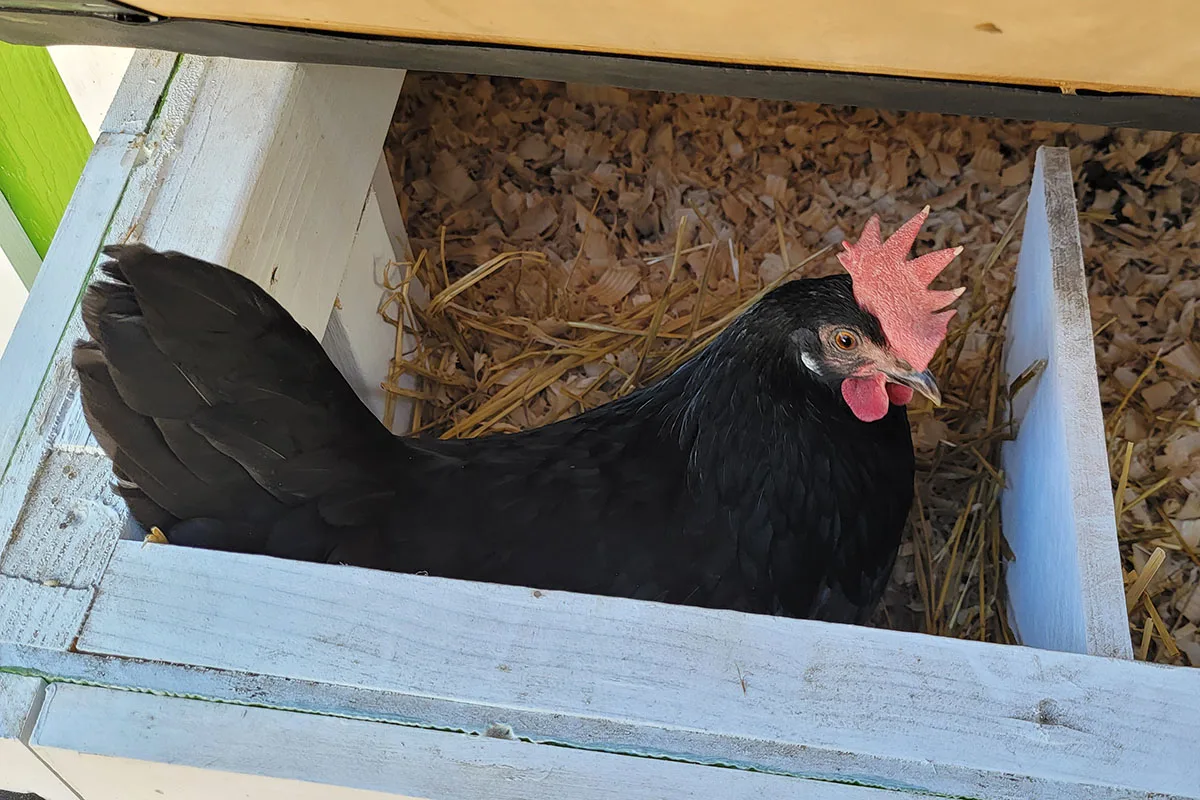
Hens lay eggs for a reason – to make more chicks. Now and then, your hen may go broody and start sitting in the nest all day and hoarding eggs. While a hen is broody, she will stop laying.
Signs of a broody hen:
- You will find her in the nest box all the time.
- She will start to pull out her breast feathers to keep eggs warm with direct skin contact.
- She will become quite territorial, hissing, constantly “ticking,” clucking and puffing up all her feathers. (Affectionately known among chicken folks as “the hissing pancake.”)
What to do?
You don’t have to do anything immediately if you don’t want to. Broodiness usually passes on its own. There’s nothing harmful about a hen going broody. You can let your broody hen hang out in the nest box until the mood passes.
However, it can become problematic if your hen doesn’t vacate the premises within the 21 days it takes to hatch eggs (This can happen when you don’t have a rooster/fertilized eggs).
Because broody hens don’t eat and drink as much while sitting on a nest, they lose a lot of weight. Normally, this issue self-corrects once chicks hatch. Hens that overstay their time in the nest box also become susceptible to mites, lice and illness from spending so much time confined.
If your hen’s stay in the nest box has you concerned, you can encourage her to break her broodiness in a few different ways:
- Consistently remove her from the nest box and distract her.
- Collect eggs as soon as they are laid so your broody hen can’t sit on them.
- Place a frozen water bottle in the nest box and cover it with bedding (the cold will cool her core temperature, helping to end her broody streak). Do NOT put the bottle in without covering it first, as the direct cold can burn her tender exposed skin.
- Remove the bedding from her nest box.
- Lock everyone out of the coop for the day (once the other girls have laid eggs), ensuring they can access food and water outside.
- Finally, you can give her fertilized eggs to hatch. If she’s broody and you have the means, let her do what nature intended.
Be consistent, and your hen should return to her social self within a few days. Try raising quail for a fowl that rarely ever goes broody.
8. Old Age
Chickens generally have about three years of steady egg-laying once they become sexually mature. After that, you will notice an annual decline in egg production, resulting in significantly fewer eggs each year. It’s the way nature intended it. Your hen may simply be heading into retirement, or the freezer, depending on how you handle your flock.
What to do?
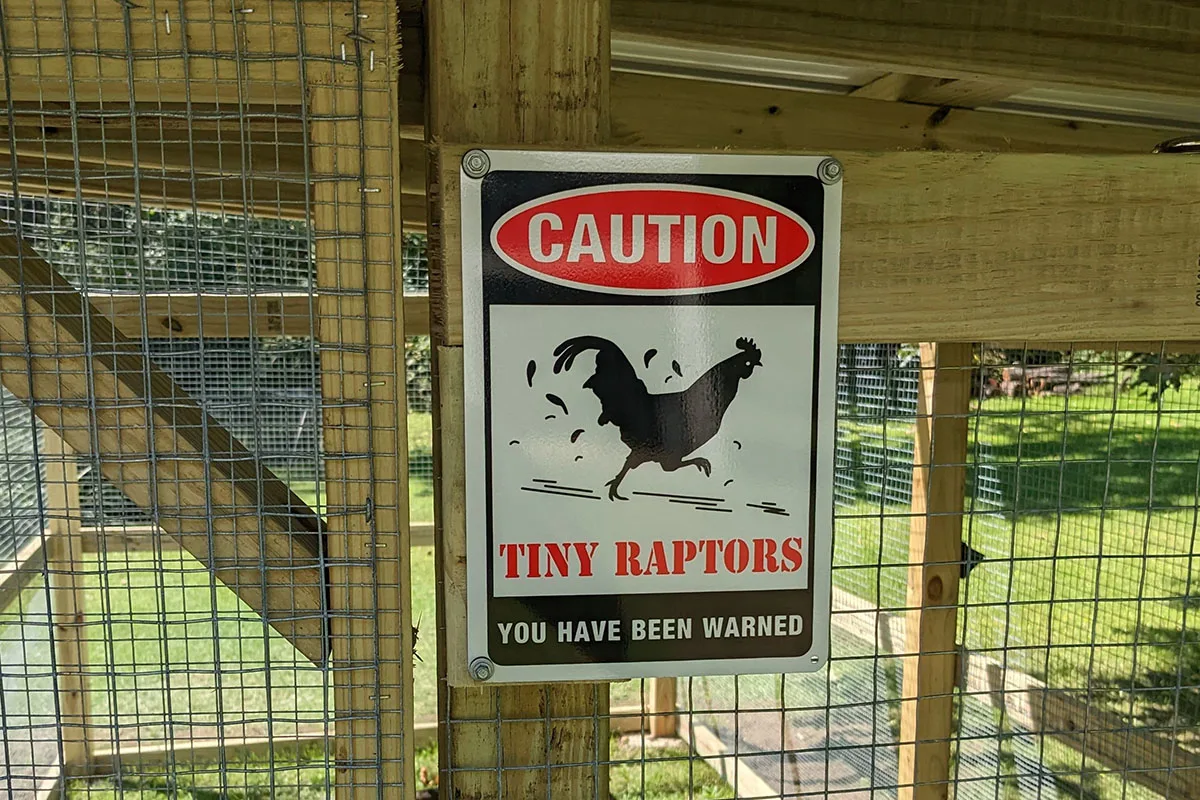
While there isn’t much you can do for the individual hen, you can plan your flock, so you always have a good mix of different-aged hens. Adding a few new tiny raptors each year can help balance out the hens who don’t lay as often anymore.
9. Illness
Illness is also a common reason your hen may stop laying eggs for a time. One issue, in particular, can be quite serious. That is when a hen is egg bound and can’t pass her egg. There are things you can do to help, but if she hasn’t passed the egg within 24-48 hours, you will likely lose the bird. It’s important to remember that when helping your hen pass the egg on her own at home.
Don’t wait until the last minute to decide to call a vet.
Other illnesses can also lead to a pause in egg-laying. Keep an eye out for hens who are listless, have stopped eating or drinking, have discharge from their nostrils or eyes or have other obvious signs of illness. Make sure you don’t have plants that are toxic to chickens nearby. You may need to quarantine your bird and seek veterinary help.

Get the famous Rural Sprout newsletter delivered to your inbox.
Including Sunday musings from our editor, Tracey, as well as “What’s Up Wednesday” our roundup of what’s in season and new article updates and alerts.

